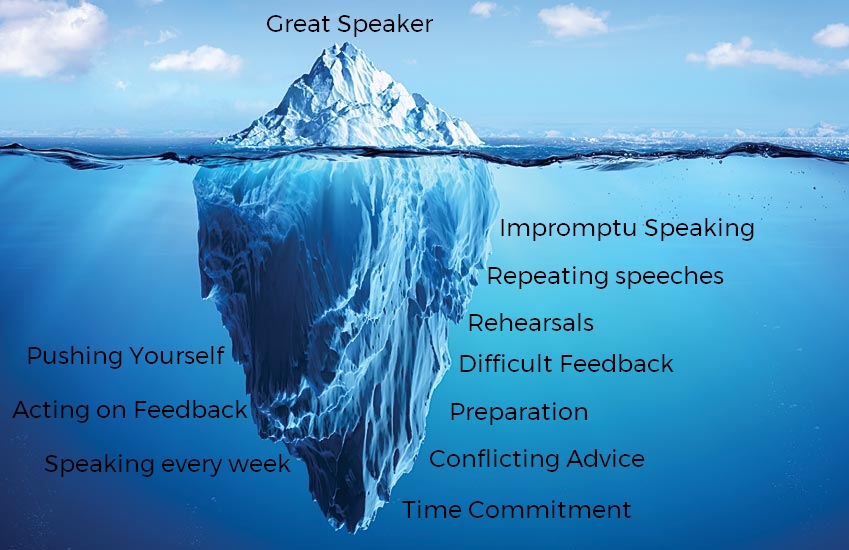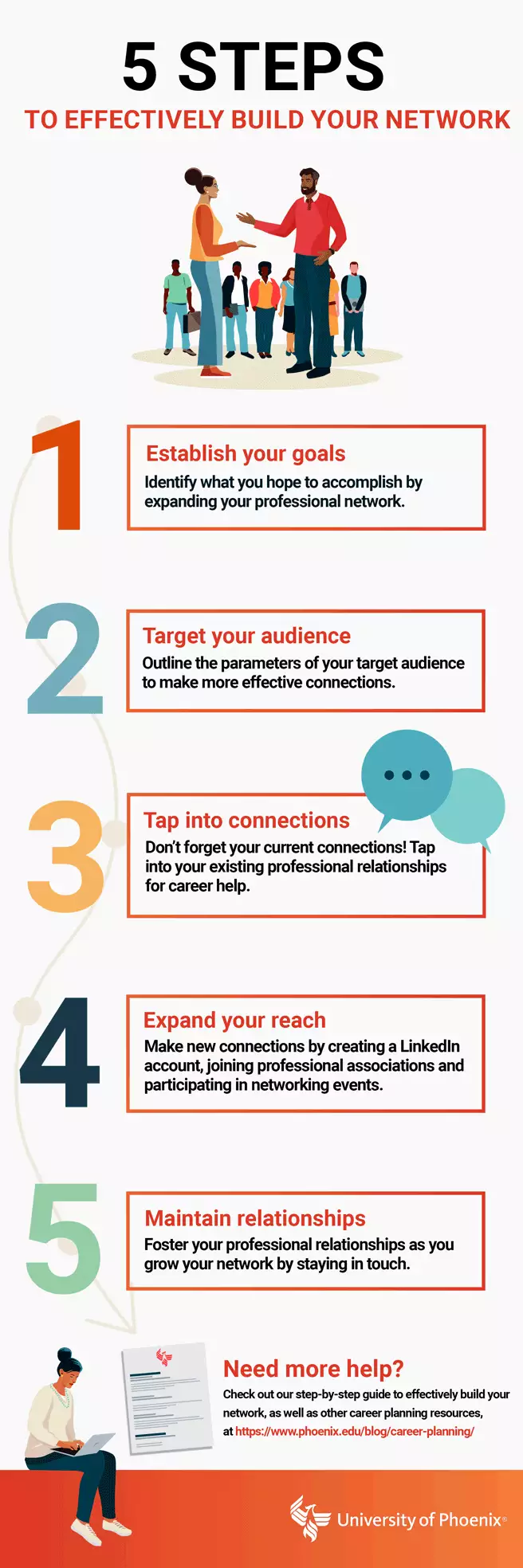How to Become a Better Speaker?
To become a better speaker, focus on practicing and refining your speaking skills consistently. Develop confidence and engage with your audience through effective communication techniques.
Effective public speaking is a valuable skill that can enhance career prospects and personal growth. Whether you are giving a presentation, delivering a speech, or participating in a group discussion, being a better speaker can greatly improve your ability to articulate ideas and influence others.
However, becoming a skilled speaker requires practice, consistency, and honing certain techniques. This article will provide practical tips and strategies to help you enhance your speaking skills, boost confidence, and engage with your audience effectively. By implementing these suggestions, you can become a more captivating and persuasive speaker. Let’s dive in and explore how you can improve your speaking abilities.
Identifying The Importance Of Effective Communication
Effective communication is crucial in becoming a better speaker. By mastering this skill, individuals can engage and connect with their audience, convey their message clearly, and leave a lasting impact with their words.
Effective communication is a crucial skill for success in various aspects of life. Whether it’s in personal relationships, professional settings, or public speaking engagements, the ability to express oneself clearly and confidently has a significant impact. In this section, we will explore the importance of effective communication and its relationship to success.
Let’s dive in!
The Relationship Between Communication And Success
Plain Paragraph:
Clear and effective communication is an essential ingredient for success in all areas of life. It enables us to convey our thoughts, ideas, and emotions in a way that can be easily understood and accepted by others. Effective communication fosters stronger relationships, promotes collaboration and teamwork, and allows us to articulate our goals and aspirations confidently.
It is a skill that can make a significant difference in our personal and professional lives.
Bullet Points:
- Establishing Stronger Relationships: Effective communication enhances our ability to connect with others, fostering deeper relationships built on trust and understanding.
- Promoting Collaboration and Teamwork: When communication is clear and concise, it maximizes teamwork and encourages collaboration, leading to higher productivity and better outcomes.
- Articulating Goals and Aspirations: The ability to communicate effectively enables us to express our dreams, ambitions, and vision, inspiring and motivating others to support us on our journey.
Recognizing the importance of effective communication is the first step towards becoming a better speaker. It enables us to build stronger relationships, promote collaboration, and express our goals and aspirations with clarity. By developing excellent communication skills, we can unlock countless opportunities for success in all areas of our lives.
So, let’s dive deeper into the art of effective communication and pave our way to becoming exceptional speakers.
Understanding The Art Of Public Speaking
Discover the secrets to becoming a more confident and effective public speaker with ‘Understanding the Art of Public Speaking’. Enhance your communication skills and learn techniques to engage your audience and leave a lasting impact.
Public speaking is an essential skill that can help you excel in both your personal and professional life. Whether you are presenting in front of a small group or delivering a keynote address to an audience, the art of public speaking requires certain techniques and abilities to engage and captivate your listeners.
In this section, we will explore two key aspects of public speaking: overcoming stage fright and effectively utilizing eye contact and body language.
Overcoming Stage Fright
Stage fright is one of the most common fears people face when it comes to public speaking. The fear of being judged or making mistakes can be paralyzing, but it is important to remember that with practice and preparation, you can overcome stage fright.
Here are a few strategies to help you conquer your fear:
- Prepare and practice: The more you practice your speech or presentation, the more confident you will feel. Rehearse in front of a mirror or record yourself to identify areas for improvement.
- Deep breathing exercises: Deep breathing techniques can help calm your nerves before speaking. Take slow, deep breaths, focusing on inhaling and exhaling slowly to reduce anxiety.
- Visualize success: Spend some time visualizing yourself delivering a successful presentation. Imagine yourself speaking with confidence and engaging the audience, which can help alleviate anxiety.
- Start small: Begin by speaking in front of smaller groups or in more casual settings to build your confidence gradually. Joining public speaking groups or attending workshops can also provide a supportive environment for practice.
Eye Contact And Body Language
Aside from conquering stage fright, mastering eye contact and body language is crucial for effective public speaking. Your non-verbal cues can greatly impact how your message is received by the audience. Here are some tips for utilizing eye contact and body language effectively:
- Maintain eye contact: Make regular eye contact with different individuals in the audience. This helps establish a connection and makes your presentation more engaging and personal.
- Use gestures: Incorporate appropriate hand gestures to emphasize key points or illustrate concepts. This helps convey enthusiasm and visually reinforces your message.
- Stand tall and use good posture: Stand straight, with your shoulders back and head held high. Good posture exudes confidence and projects authority.
- Smile and be expressive: A genuine smile can instantly connect you with your audience. Be expressive, using facial expressions and varying your vocal tone to keep your listeners engaged.
- Move with purpose: Utilize intentional, controlled movements while speaking. Moving around the stage or using your space effectively can help keep the audience’s attention focused on you.
By implementing these strategies and focusing on overcoming stage fright, as well as utilizing effective eye contact and body language, you can become a better speaker and deliver impactful presentations that leave a lasting impression. Remember, practice makes perfect, so dedicate time to honing your public speaking skills and watch your confidence soar.
Developing Your Speaking Skills
Developing Your Speaking Skills can be achieved by implementing effective strategies and techniques. By practicing regularly, seeking feedback, and studying influential speakers, you can become a better speaker and confidently communicate your ideas.
Becoming a better speaker doesn’t happen overnight. It requires time, effort, and a commitment to continuous improvement. Developing your speaking skills can seem intimidating, but with the right techniques and practices, you can elevate your communication abilities to new heights.
In this section, we will explore two crucial aspects of becoming a better speaker: practicing vocal warm-ups and engaging the audience with storytelling techniques. Let’s dive in!
Practicing Vocal Warm-Ups:
- Start with breathing exercises: Deep breathing exercises help you relax and control your breath while speaking.
- Articulation drills: Practice pronouncing difficult words and sounds to improve your clarity and diction.
- Tongue twisters: Recite tongue twisters to improve your enunciation and develop flexibility in your speech.
- Vocal range exercises: Explore your vocal range by practicing high and low pitches to add variety and interest to your speech.
Engaging The Audience With Storytelling Techniques:
- Begin with a captivating hook: Grab your audience’s attention from the start with an intriguing story or a thought-provoking question.
- Use vivid imagery: Paint a vivid picture with your words to create a sensory experience for your audience.
- Incorporate personal anecdotes: Share personal stories or experiences that are relatable to establish a connection with your listeners.
- Emphasize emotion: Infuse your storytelling with emotions to make your audience feel more involved and engaged.
- Utilize humor: Inject humor into your stories to entertain and captivate your audience, making your speech more memorable.
Remember, practice makes perfect. Incorporating regular vocal warm-ups and mastering storytelling techniques will help you become a more confident and impactful speaker. Challenge yourself, experiment with different approaches, and most importantly, enjoy the journey of developing your speaking skills.
Utilizing Visual Aids For Enhanced Presentations
Enhance your public speaking skills by incorporating visual aids into your presentations. Engage your audience and convey your message effectively using impactful visuals that support your key points.
Incorporating Slides and Graphics:
- Slides and graphics can greatly enhance your presentation by visually representing key points and information.
- Utilize tools like PowerPoint or Google Slides to create visually appealing slides that complement your speech.
- Include relevant images, charts, and graphs to simplify complex concepts and engage your audience.
Using Props for Visual Impact:
- Props can be a powerful way to capture your audience’s attention and reinforce your message.
- Choose props that align with your topic and add visual interest to your presentation.
- Props can include physical objects, models, or simple visual aids like charts or diagrams.
Remember, visual aids should complement your speech and not distract from it. Use visuals sparingly and strategically, ensuring they support and enhance your message. By incorporating slides and graphics and utilizing props effectively, you’ll be on your way to becoming a better speaker and capturing your audience’s attention like never before.
Mastering The Use Of Non-Verbal Communication
Become a better speaker by mastering the use of non-verbal communication. Enhance your presentation skills with effective body language, eye contact, and gestures to captivate your audience and convey your message confidently.
Becoming a better speaker involves more than just mastering the art of verbal communication. Non-verbal communication plays a crucial role in delivering a powerful and impactful message. In this section, we will delve into the world of non-verbal communication and explore how gestures, facial expressions, and effective hand movements can enhance your speaking skills.
So, let’s dive right in!
Gestures And Facial Expressions
- Gestures:
- Use your hands to emphasize key points: You can accentuate important ideas or concepts by using hand gestures. This adds visual interest to your speech and helps your audience to understand and remember your message.
- Maintain a natural and relaxed stance: Avoid stiff or awkward gestures that may distract your audience. Instead, focus on smooth and purposeful movements that complement your words.
- Consider cultural differences: Be mindful of cultural norms and gestures that may not be appropriate in certain contexts. Research and understand the cultural backgrounds of your audience to ensure effective communication.
- Facial expressions:
- Use your face to convey emotions: Facial expressions are powerful tools for expressing emotions and engaging your audience. Smile when appropriate, show enthusiasm, and display genuine interest to create a connection with your listeners.
- Maintain eye contact: Eye contact is essential for building trust and rapport with your audience. Look directly at individuals in the audience, making sure to maintain eye contact for a few seconds before moving on to the next person.
- Practice and observe yourself: Record your speeches or presentations to evaluate your facial expressions. Pay attention to any expressions that may convey the wrong message or distract from your words. Practice in front of a mirror to improve your awareness of your facial expressions.
Effective Use Of Hand Movements
- Use hand movements to enhance your message:
- Use open palm gestures: Open palm gestures are perceived as more welcoming and trustworthy. Avoid closed fists or pointing fingers, as they can come across as aggressive or authoritative.
- Use hand movements to illustrate concepts: Incorporate hand movements that complement your words and help illustrate complex concepts or ideas. This visual aid reinforces your message and makes it easier for your audience to follow along.
- Be mindful of excessive or repetitive movements: While hand movements can be effective, be cautious not to overdo it. Excessive or repetitive gestures can be distracting and take away from the clarity of your message.
Mastering non-verbal communication is a vital part of becoming a better speaker. By understanding and incorporating gestures, facial expressions, and effective hand movements, you can enhance your ability to engage and connect with your audience. Practice these techniques, observe yourself, and tailor your non-verbal communication to suit different speaking situations.
Remember, non-verbal cues can often speak louder than words!

Credit: www.speaktolead.co.uk
Enhancing Your Speaking Style And Delivery
In order to improve your speaking skills, it is important to focus on enhancing your style and delivery. This can be achieved by practicing concise sentences, using varied phrases, and maintaining an engaging delivery that captures the audience’s attention.
Speaking effectively is not just about what you say, but how you say it. The way you deliver your message can greatly impact your audience’s understanding and engagement. To become a better speaker, here are a few key techniques you can utilize to enhance your speaking style and delivery:
Utilizing Vocal Variation And Inflection
- Vary your pitch: Experiment with different tones and pitches to add depth to your voice. This can help convey emotions, emphasize certain points, and keep your audience captivated.
- Leverage volume: Adjust your speaking volume to suit the context. Speak softly to create an intimate atmosphere or raise your voice to command attention and convey enthusiasm or urgency.
- Emphasize key words: Highlight important words or phrases by slightly slowing down your speech, raising your volume, or adding emphasis. This draws attention to the key ideas you want to convey.
- Use pauses: By incorporating intentional pauses in your speech, you can allow ideas to sink in, build suspense, or signal transitions between important points.
- Employ vocal inflection: Inflection refers to the rising and falling of your voice while speaking. Varying your inflection helps to convey different emotions, add intrigue, and maintain engagement.
Controlling Speaking Pace And Pausing
- Speak at a measured pace: Avoid speaking too quickly or too slowly. A moderate speaking pace allows your audience to understand and process your message effectively.
- Use pacing to create emphasis: Speed up your speech to create excitement or slow down to emphasize certain points. Modulating your speaking pace can help highlight key ideas and maintain interest.
- Strategically use pauses: Pauses can help you gather your thoughts, give your audience time to reflect on what you’ve said, or create dramatic effect. Utilize brief pauses after important points to let them sink in.
- Avoid filler words and sounds: Minimize the use of filler words like “um,” “uh,” and “like,” as well as excessive throat clearing or other distracting sounds. This helps maintain clarity and professionalism in your speech.
Enhancing your speaking style and delivery involves a combination of vocal variation, controlling your pace, and thoughtful use of pauses. Adopting these techniques will not only make you a more compelling speaker but also strengthen your message and engage your audience effectively.
Keep practicing and refining these skills to become a better speaker over time.
Crafting Engaging Speeches And Presentations
Crafting Engaging Speeches and Presentations: Learn valuable techniques to enhance your speaking abilities and captivate your audience. Discover how to become a better speaker through effective communication strategies and impactful storytelling.
Crafting engaging speeches and presentations is an essential skill for becoming a better speaker. By structuring your content for maximum impact and utilizing powerful openings and closings, you can captivate your audience and leave a lasting impression. Here are some effective strategies to consider:
Structuring Your Content For Maximum Impact
- Begin with a clear and concise Start by grabbing your audience’s attention and clearly stating the purpose of your speech or presentation.
- Organize your content logically: Structure your ideas in a way that flows naturally, allowing your audience to follow your train of thought effortlessly.
- Use transitions: Smoothly move between different parts of your speech or presentation by utilizing transitional phrases or linking words.
- Provide supporting evidence: Back up your claims with relevant examples, statistics, or anecdotes to make your content more persuasive.
- Break up complex information: Use bullet points or subheadings to break down complex information into easily digestible chunks.
Utilizing Powerful Openings And Closings
- Begin with a compelling anecdote or story: Engage your audience from the start by sharing a personal experience or a relatable narrative that ties into your topic.
- Ask thought-provoking questions: Start with a rhetorical question or a query that encourages your audience to reflect on the topic at hand.
- Use impactful quotes: Begin your speech or presentation with a relevant and powerful quote that sets the tone for your content.
- End with a call to action: Leave your audience inspired by offering a clear and actionable step they can take after listening to your speech or presentation.
- Summarize key points: Provide a brief recap of the main ideas you discussed, reinforcing your core message and ensuring it sticks with your audience.
Remember, crafting engaging speeches and presentations takes practice. By employing these strategies and continuously refining your delivery, you can become a better speaker and leave a lasting impact on your audience. So go ahead, grab the microphone, and make your mark!
Connecting With Your Audience
Become a dynamic and captivating speaker. Engage your audience by using clear and concise language, maintaining eye contact, and incorporating storytelling to make your message resonate. Let your passion and authenticity shine through to establish a genuine connection with your listeners.
Tailoring Your Message To The Audience
Connecting with your audience is an essential aspect of becoming a better speaker. To truly engage your listeners, you need to tailor your message to their specific needs and interests. By doing so, you can capture their attention, keep them engaged, and leave a lasting impression.
Here are some strategies to help you achieve that:
- Understand your audience: Take the time to research and understand your audience demographics, such as their age, profession, and interests. This information will inform how you craft your message and the examples you use.
- Know their level of knowledge: Gauge your audience’s familiarity with the topic at hand. Adapt your language and avoid using jargon that might confuse or alienate them. If you need to introduce complex concepts, break them down into accessible terms.
- Identify their motivations: What are your listeners hoping to gain from your speech? Are they seeking inspiration, practical advice, or a new perspective? By understanding their motivations, you can frame your message accordingly and deliver what they’re looking for.
- Address their concerns: Anticipate any doubts or objections your audience might have about your topic. By empathetically addressing their concerns, you can build credibility and gain their trust.
Building Rapport Through Empathy
Building a strong connection with your audience goes beyond understanding their needs—it’s also about empathizing with them. When you can relate to your listeners on an emotional level, you can establish trust and create a memorable experience. Here’s how you can build rapport through empathy:
- Put yourself in their shoes: Consider the perspectives, experiences, and challenges your audience members might face. Relate your message to their daily lives and show that you understand their struggles and aspirations.
- Use personal stories: Share personal anecdotes that your audience can relate to. This will humanize your message and make it more relatable and engaging.
- Use inclusive language: Make sure your speech is inclusive and respectful of people from all backgrounds. Avoid using exclusive terms or making assumptions about your audience’s identities or experiences.
- Involve your audience: Encourage interaction by asking questions or soliciting opinions throughout your speech. This will make your audience feel involved, valued, and connected to your message.
Remember, to connect with your audience effectively, you need to tailor your message to their needs and build rapport through empathy. By doing so, you’ll deliver a speech that resonates, inspires, and leaves a lasting impact.
Utilizing Feedback And Evaluation To Improve
Feedback and evaluation are essential tools for enhancing your speaking skills. By analyzing and implementing constructive criticism, you can continuously improve your abilities as a speaker, ensuring impactful and engaging presentations.
Seeking Constructive Criticism
- Surround yourself with a supportive network of individuals who can offer honest and constructive feedback on your speaking skills. Seek their input regularly to continually improve.
- Join a public speaking group or club where you can receive feedback from experienced speakers. These groups often provide a safe and nurturing environment for growth.
- Request specific feedback on areas you want to improve, such as body language, vocal variety, or structure of your presentations.
- Embrace feedback as an opportunity for growth and learning, rather than taking it personally.
- Actively listen to and consider the feedback you receive, looking for areas of improvement and potential strategies to implement.
- Use tools like video recording to capture and evaluate your speaking performances, enabling you to identify areas for improvement that may not be immediately apparent during the presentation.
Evaluating And Reflecting On Your Performance
- Assess your speaking performances objectively to identify both strengths and weaknesses.
- Take note of any patterns or recurring issues that you face during presentations.
- Reflect on what worked well and what could have been improved after each speaking engagement.
- Consider seeking feedback from your audience through surveys or interactive Q&A sessions to gain a comprehensive understanding of their perspectives.
- Evaluate your overall growth as a speaker by setting measurable goals and tracking your progress over time.
- Continually seek opportunities to refine your skills through self-reflection and self-assessment.
Remember, the journey to becoming a better speaker is a continuous process that requires ongoing practice, self-reflection, and a willingness to seek and embrace feedback. By utilizing constructive criticism and evaluating your performances, you can refine your skills and become a more impactful and confident speaker.
Expanding Your Knowledge And Expertise
Enhance your public speaking skills and become a more accomplished speaker. Build up your knowledge and expertise with practical tips and techniques for delivering impactful presentations.
To become a better speaker, it’s essential to constantly expand your knowledge and expertise in various subjects. Researching and educating yourself on a wide range of topics will not only make you a more well-rounded speaker but also help you connect with diverse audiences.
Here are some effective ways to enhance your knowledge and become an expert in your field:
- Researching and Educating Yourself on Various Topics:
- Stay updated with industry trends and news by reading reputable websites, blogs, and publications.
- Subscribe to relevant podcasts or YouTube channels to learn from experts and gain insights.
- Attend conferences, webinars, or workshops to gain new perspectives and network with professionals in your field.
- Developing Strong Subject Matter Expertise:
- Choose a specific area of interest or expertise within your field and focus on deepening your knowledge in that area.
- Seek out authoritative books, research papers, or academic journals that cover your chosen subject matter.
- Engage in online courses or formal education programs that offer specialized training related to your expertise.
Remember, expanding your knowledge and expertise is an ongoing process. Dedicate time each week to research, learn, and stay up to date with the latest advancements in your field. By continuously expanding your understanding and becoming a subject matter expert, you’ll be able to deliver more engaging and informative speeches that resonate with your audience.
Practicing And Continuous Improvement
Practicing and continuous improvement are key to becoming a better speaker. By consistently honing your skills and seeking opportunities for growth, you can enhance your communication abilities and deliver impactful speeches.
:
Joining Toastmasters or Similar Public Speaking Clubs:
- Consider joining Toastmasters, a renowned organization that facilitates public speaking skills development.
- Attend regular Toastmasters meetings to gain exposure and practice your speaking abilities.
- Benefit from receiving constructive feedback and guidance on how to improve your delivery, body language, and overall presentation skills.
- Engage in various speaking opportunities within the club, such as prepared speeches, impromptu speaking exercises, and leadership roles.
- Leverage the supportive and encouraging environment provided by Toastmasters to enhance your confidence and overcome any fear of public speaking.
Engaging in Regular Practice Sessions:
- Set aside dedicated time to practice your speaking skills regularly.
- Choose a quiet and comfortable space where you can focus and minimize distractions.
- Utilize techniques such as recording yourself while practicing to review and assess your performance.
- Practice speaking on a variety of topics to enhance your versatility and ability to connect with different audiences.
- Experiment with different speaking styles, tones, and gestures to discover what works best for you.
- Seek opportunities to practice in front of others, whether it be friends, family, or colleagues, to receive valuable feedback and improve your communication skills.
Remember, becoming a better speaker requires consistent effort, dedication, and a willingness to embrace continuous improvement. By joining public speaking clubs like Toastmasters and engaging in regular practice sessions, you can develop and refine your speaking skills, ultimately becoming a more confident and impactful speaker.
Leveraging Technology And Online Resources
Enhance your speaking skills by harnessing the power of technology and online resources. Discover effective techniques and tools to become a better speaker, leveraging the digital realm for growth and improvement.
Becoming a better speaker takes practice and dedication. With the advancements in technology and the availability of online resources, honing your public speaking skills has never been easier. In this section, we will explore two key ways you can leverage technology and online resources to become a better speaker.
Online Public Speaking Courses And Webinars:
- Embrace the opportunity to learn from experts in the industry through online public speaking courses and webinars.
- These courses and webinars provide structured lessons, practical tips, and techniques to enhance your speaking skills.
- Benefits of online public speaking courses and webinars include the flexibility to learn at your own pace, access to a diverse range of topics, and the ability to engage with instructors and fellow participants.
- With a wide range of options available, you can choose courses or webinars that cater to your specific needs, whether it’s overcoming stage fright, improving vocal delivery, or mastering the art of storytelling.
- By investing time in online public speaking courses and webinars, you can gain the knowledge and confidence necessary to become a better speaker.
Utilizing Video Recordings For Self-Evaluation:
- Video recordings are invaluable tools for self-evaluation as a speaker.
- Record your presentations or speeches and review them critically to identify areas for improvement.
- Pay attention to your body language, facial expressions, vocal tone, and delivery.
- Make note of any habits or mannerisms that may distract your audience and work towards eliminating them.
- Analyze your overall presentation style and identify ways to enhance your clarity, conciseness, and engagement with the audience.
- By regularly reviewing your video recordings, you can track your progress, identify patterns, and implement targeted improvements to your speaking skills.
Leveraging technology and online resources can significantly contribute to your journey in becoming a better speaker. Online public speaking courses and webinars offer structured learning opportunities, while video recordings allow for self-reflection and improvement. Embrace these tools, put in the effort, and watch your speaking skills soar to new heights.
Frequently Asked Questions For How To Become A Better Speaker
How Can I Improve Myself As A Speaker?
To improve as a speaker, focus on these steps: 1. Practice regularly and aim to speak with clarity and confidence. 2. Work on your body language and engage with your audience through eye contact and gestures. 3. Study and learn from effective speakers for inspiration and new techniques.
4. Seek feedback from others and be open to constructive criticism to develop your skills.
How Can I Become More Well Spoken?
To become more well spoken, follow these guidelines: 1. Speak in shorter sentences, keeping them under 20 words. 2. Use SEO-friendly, unique, and easy-to-understand language that sounds natural. 3. Avoid starting sentences with certain phrases and words and do not write in passive voice.
4. Ensure your writing passes AI writing detection and maintains a human-like tone.
What Are The 5 Ways To Become A Better Public Speaker?
Practice regularly, prepare thoroughly, use body language effectively, engage with the audience, and seek feedback for improvement.
What Are 5 Public Speaking Skills?
Five public speaking skills include effective body language, vocal variety, confident delivery, engaging storytelling, and audience interaction.
Conclusion
To become a better speaker, you need consistent practice, self-awareness, and a willingness to push yourself outside of your comfort zone. It’s important to focus on effective communication techniques, such as maintaining eye contact, using confident body language, and speaking with clarity and conviction.
Find opportunities to practice your speaking skills, whether it’s through joining a public speaking club, participating in workshops, or even doing virtual presentations. Feedback from others can be invaluable in identifying areas for improvement. Remember that becoming a better speaker is a journey, and progress takes time.
Be patient with yourself and celebrate small victories along the way. With dedication and persistence, you can become a confident and impactful speaker who captivates and inspires your audience. So go out there, embrace the challenge, and watch your speaking skills soar.




